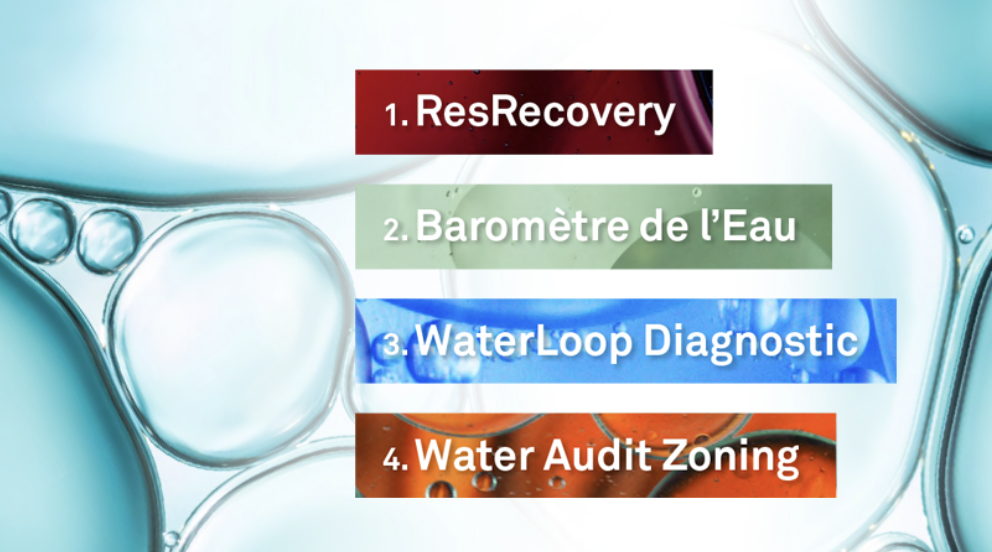
Results of the 4 CEBEDEAU Projects for Circular Wallonia
Published on 26 January 2024
Publication
Discover the key findings of the four projects conducted by CEBEDEAU as part of Circular Wallonia. All these initiatives, focused on the preservation and enhancement of water resources, highlight Wallonia’s commitment to a circular economy.
- Raw materials
- Practices of circularityNeed help with filters?
As part of Circular Wallonia, CEBEDEAU undertook four ambitious projects aimed at optimizing the use and enhancement of water resources in Wallonia. These initiatives fit into a broader circular economy approach, where resource preservation and reuse are central objectives. Each of the four components explored innovative strategies to tackle water-related challenges, be it in recycling, pollutant reduction, or the optimization of industrial processes.
The first project focused on reducing water consumption in local industries by analyzing water flows and identifying potential reuse points. Through detailed mapping of needs and the implementation of more efficient treatment processes, participating companies managed to decrease their water footprint and improve competitiveness.
The second project addressed the valorization of wastewater. It showcased the feasibility of recovering certain resources found in effluents, including nutrients or chemical elements that can be reintegrated into production cycles. This approach supports a circular economy perspective, where nothing is wasted and everything has the potential to be repurposed.
The third project delved into advanced treatment solutions to eliminate emerging pollutants. Researchers examined various processes (such as advanced oxidation or specialized membranes) to improve the quality of water discharged into the environment. The results are particularly promising for wastewater treatment plants and industrial sites seeking to reduce their environmental impact.
Lastly, the fourth project emphasized networking and industrial synergies. By encouraging cooperation among different businesses and research centers, this initiative demonstrated that collective solutions could arise to optimize water management on a regional scale, reduce costs, and generate new economic opportunities.
Beyond their technical specifics, these four projects highlight Wallonia’s commitment to tackling key issues related to the circular transition. They also illustrate how applied research, carried out by CEBEDEAU, can serve as a genuine driver of innovation for sustainable development. Through rigorous scientific analysis and collaboration with a wide range of partners, CEBEDEAU contributes to creating replicable and adaptable models in other regions or sectors.
By pursuing these initiatives, Wallonia strengthens its position as a center of excellence in water management and the circular economy. The lessons learned from these pilot projects will form the foundation for future ventures designed to safeguard and further enhance water resources, while generating economic and environmental benefits for the region.